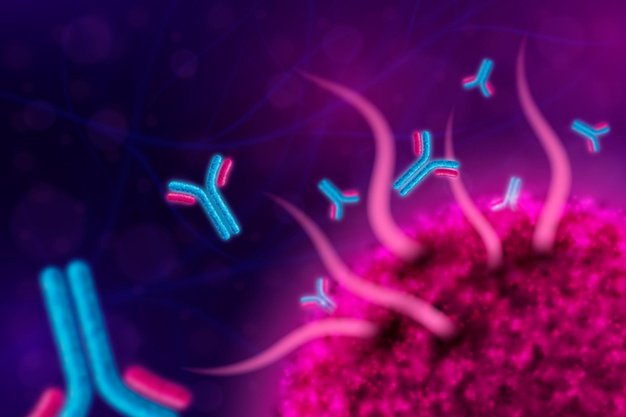
Photo Credit: Freepik
The National Centre for Infectious Diseases (NCID) and A*STAR’s Singapore Immunology Network (SIgN) have announced research findings that antibodies found in recovered COVID-19 patients are able to limit the spread of SARS-CoV-2 in the body by counteracting (“neutralising”) four linear amino acid sequences (“epitopes”) S14P5, S21P2, S20P2, and N4P5.
Epitopes are specific parts of the virus that are recognized by our immune systems’ antibodies and bind to them. Epitopes are located on the spike proteins of the “crown” surrounding the coronavirus’ body. Of the four epitopes, N4P5 achieved the highest level of specificity (100%) and sensitivity (>96%) against SARS-CoV-2.
The two studies were published in international scientific journals Nature Communications and EBioMedicine by The Lancet. NCID formulated the clinical studies, recruited patients, and collected samples and clinical data, while A*STAR’s SIgN conceptualized the scientific studies and performed the experiments. The studies were funded by various schemes, including the COVID-19 Research Fund, which is supported by the National Research Foundation Singapore (NRF) and Ministry of Health (MOH), administered by the National Medical Research Council, as well as through A*STAR’s core research grants and A*ccelerate’s GAP-funding.
“SARS-CoV-2 is the seventh human coronavirus. The internationally leading work by the Singapore research team focuses on a powerful aspect of finding out how humans can generate specific antibodies targeted against SARS-CoV-2,” said Professor Leo Yee Sin, Executive Director, NCID.
Key findings of the two studies:
These epitopes will be used by A*STAR in a multi-centre collaborative study for the development of the WHO International Standard for COVID-19 antibody and Reference Panel. These antibody targets against similar coronaviruses can address future viral outbreaks. Further studies will be conducted to enable the design of diagnostic tools and the development of vaccines and therapeutics.




